Kelly Jensen's Blog, page 147
May 6, 2013
Twitterview: Sara Zarr

I can't even tell you how excited we are to have Sara Zarr here as part of our Twitterview series. I adored The Lucy Variations, which is out today, and I loved being able to pick her brain about the book, as well as her prior books, about her podcast "This Creative Life" and much, much more. Since I had her, I asked her as much as I could!
I'm also giving away a copy of The Lucy Variations.
Without further ado, Sara:
Pitch The Lucy Variations in 140 characters.
16-year-old retired concert pianist reclaims her life & love of music with the help of her little brother’s cute (married) piano teacher
What inspired The Lucy Variations?
My midlife crisis & my own creative crisis, which is handily disguised in life of teen girl. Also by my experiences mentoring/being mentored
The Lucy Variations is your first novel in third-person. What made you choose that direction?
Limited 3rd allowed me to do some different things w/story than I could in 1st, while keeping close connection to character
This book tackles passion and the desire one feels to create. Did writing this feel like looking into a mirror at times?
Absolutely! It’s very much about my relationship w/ writing & writing career & how they’re 2 different things that can feel in conflict
Music plays a large role in The Lucy Variations. What music inspired you while writing it?
Junip and Jose Gonzalez were on heavy rotation in drafting, also the Shins
If Lucy's story had a soundtrack, what would be the first, middle, and last tracks?
1. The Shins: The Rifle’s Spiral 2. Junip: In Every Direction 3. Vivaldi’s Winter from The Four Seasons
What, if anything, should readers walk away with from The Lucy Variations?
I’m always happy if they walk away with a great reading experience! Beyond that, it’s such an individual thing.
Talk a bit about the change in title and cover direction for your novel Once Was Lost, now What We Lost.
I blogged about this in some detail, but basically it’s about finding as many readers for the book as possible.
What character do you most relate to from your novels? Why?
Right now, Lucy, because her struggle to protect the love of her creative work from external demands has been mine.
If you can't answer that definitively, what character do you think about and revisit the most? Why?
Deanna from Story of a Girl is still so real to me. I picture her out there, living her life. I feel like I could run into her on the street
You've developed a podcast over the last year, "This Creative Life." What inspired its creation?
The love of talking about what it feels like to be inside the creative process, and the sense it would be valuable to others, too
What has been some of the most valuable insight you've gained through your Podcast guests?
That we’re not alone, that there’s no one right way to do this thing, that it’s worth doing even when it’s hard
Who is your dream guest for "This Creative Life?"
They are all my dream guests! I wish I could resurrect Robert Cormier and have him on.
What gets you jazzed to write?
Reading, walking, staring into space, and mostly not wanting to hate myself at the end of the day!
Who or what do you write for?
I write for the sense that it’s my vocation & if I don’t do it I’m rejecting something fundamental about who I am & the life I’ve been given
What scares you the most about writing or the writing process?
I’m always scared that what’s coming out onto the page isn’t good, and I won’t know how to make it good. I want it to be perfect.
Is there something you've always wanted to explore in your writing but have been too fearful to do yet?
I’d like to explore the experiences of adulthood and not disguise them in lives of teen girls. That feels more self-exposing.
What's been the most satisfying part of your career to date?
Hard to choose, but the friendships & peer connections I’ve had the opportunity to form because of being a writer mean so much to me
You've purposefully chosen to change your writing routine in the last year. Can you talk about that decision?
The main thing was that I took a break from signing contracts. I just needed a pause to gather myself & be thoughtful about what to do next
Now that you're developing new routines, what, if anything, do you remind yourself of? What compels you to keep going?
Like Lucy, I want to stay connected both to myself & to audience. But it has to come from sense of calling, not fear of letting others down
Who are your top three writing influences?
I could list authors, but I think the real writing influences are more the people who’ve mentored & befriended me along the way.
What was your most influential read as a teenager?
The Chocolate War by Robert Cormier made me want to be a writer. Madeleine L’Engle’s House Like a Lotus stirred me up the most.
Who do you believe is breaking ground in YA right now?
I love what Matthew Quick is doing, and more people need to be reading Steve Brezenoff. Of course I’m a bit biased toward contemp realism
What's the best writing advice you ever received?
“More poetry!” (Friend/writer Nicole Stansbury told me this & made me attentive to thinking about beauty in the midst of storytelling.)
What's your best writing advice to give?
If you’ve never finished anything: finish. If you’ve finished: learn to be a great self-editor. This is accomplished by reading a lot.
What's next for you?
A book I wrote with Tara Altebrando, Roomies, will be out at the end of the year. After that, who knows?
Favorite ice cream?
If I could tolerate sugar and dairy, some unholy trinity of Ben & Jerry’s Coffee Heath Bar Crunch, Peanut Butter Cup, and Cookie Dough.
Loading...







 Related StoriesTwitterview: Karen Healey + Giveaway of When We WakeTwitterview: Rainbow Rowell (author of Eleanor & Park)Twitterview: Amy Spalding
Related StoriesTwitterview: Karen Healey + Giveaway of When We WakeTwitterview: Rainbow Rowell (author of Eleanor & Park)Twitterview: Amy Spalding
Published on May 06, 2013 22:00
May 5, 2013
So You Want to Read YA?: Guest Post from Author Bryan Bliss
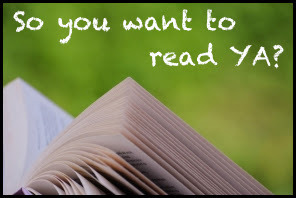
This week's guest post comes to us from soon-to-be-published author Bryan Bliss.

Bryan Bliss is a young adult author. HarperCollins will publish his first novel, MEET ME HERE, next year. He lives in Oregon with a wife, children, and student loan payments. You can find him on Twitter @brainbliss and at www.boysdontread.com.
I came home from a weekend away to find my wife reading Twilight. Actually, it was the third book in the series. The other two were thoughtlessly stacked on the end table. She didn’t even say hello to me.
This is how young adult literature entered my life.
I have never read Twilight—this is neither a badge of honor or a loaded statement. I just didn’t pick it up and, now, can’t find a reason to work it into my already towering TBR pile. And in those early days, when young adult literature was new and exciting and every trip to the bookstore was a revelation, I was a slavering mess.
Because young adult literature changed my life.
Okay, maybe not my life. But my writing and reading were changed forever, and suddenly I was the creepy thirty-something guy in the bookstore gushing to shocked teenagers and suspicious moms about everything I was reading. Everything I thought they should read. And while I got my share of awkward looks, I like to think of myself as something of a young adult literature evangelist, standing on the street corner and barking out to anyone who will listen: These are the books you need to read.
These teenagers—their mothers—were not captive audiences. But you. Well, let’s just say I’m happy to be here.
The following four books are ones that I love dearly. So forgive the way I’ve creeped up next to you amongst the shelves. Excuse this goofy smile. Because these books. I really think they could change your life.
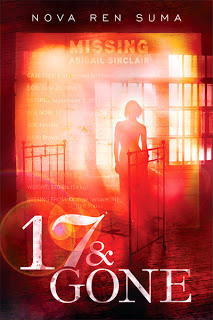
17 & Gone by Nova Ren Suma
I don’t do scary. I’m still mentally broken over a childhood viewing of A Nightmare on Elm Street. So when I heard people describing this book as creepy, I was worried. First, because I’m a Nova Ren Suma fan (Imaginary Girls easily could’ve made this list). But I also like my sleep, my sanity. Like I said: conflicted. However, my desire to read more Nova books eventually won out and thank goodness for that. Let me just say it: I don’t know if I’ve read a more compelling young adult book in the past few years. This book was creepy, but the flawless writing and compelling story push it into a space few books achieve. Yes, I’m being vague, but only because I’d hate for you to not experience this book fresh. Let me simply say this: when you figure out what’s happening, it’s kind of like Boom. Mind, blown.
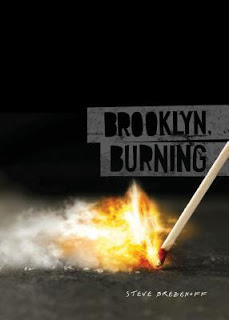
Brooklyn, Burning by Steve Brezenoff
I grew up playing in bands that practiced in basements and barns, none of which were as serious as we wanted them to be. So I’m a bit of a sucker for music books. And while music plays a huge part in Brooklyn, Burning, it’s not what the book is about. If I had to boil it down to one word, I’d say this is a book about love. Love of music. Love of Brooklyn. Love that isn’t contained to pronouns or biological parts.
Like his first book, The Absolute Value of -1, this one will make think about young adult literature in a different way, and that alone makes it a must read.
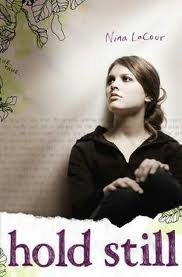
Hold Still by Nina LaCour
So, this book. I read it in a day and at the end, when I finally exhaled, it was like, I feel like I just died. But in a good way. There are a multitude of books that deal with suicide, but few do it with such care and attention to avoid the slip into sentimentality. You will feel Caitlin’s loss. The treat, however, is the beauty and poignancy with which it is written. Like the other books I’ve chosen, it’s just a damn good writer at work. Hold Still is a beautiful story of what it means to heal after tragedy—whether that’s the death of a friend, or the daily tragedies none of us can ever seem to escape.
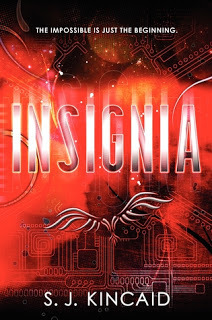
Insignia by S.J. Kincaid
So there’s a book about video games and futuristic war and it’s hilarious and all the boy characters are spot on? Well, sign me up. Now, I’m a contemporary realistic fiction sort of guy, and I don’t stray very often. However, sometimes a piece of speculative fiction finds its way into my hands. And when the gods are smiling, when one of those books keeps me up all night reading, I remember how amazing it is to be transported to a new world. I don’t want to go all Reading Rainbow on you, but this is that sort of read. I literally couldn’t stop turning the pages. And like all great books, Insignia is about more than video games and the future of warfare. It reminds us what it’s like to be young and have friends and finally realize that you can do wonderful and miraculous things.







 Related StoriesSo You Want to Read YA?: Guest Post by Kate Testerman, Literary AgentSo You Want to Read YA?: Guest Post from librarian/blogger Sarah Bean ThompsonSo You Want to Read YA?: Guest Post from Malinda Lo (author of Adaptation)
Related StoriesSo You Want to Read YA?: Guest Post by Kate Testerman, Literary AgentSo You Want to Read YA?: Guest Post from librarian/blogger Sarah Bean ThompsonSo You Want to Read YA?: Guest Post from Malinda Lo (author of Adaptation)
Published on May 05, 2013 22:00
May 3, 2013
Links of Note: May 4, 2013

Via Flavorwire, the caption for this image is the best part: a librarian helps a young hooligan.
I don't know about anyone else, but I am so glad to say it finally feels like spring here in Wisconsin. We had snow even through last week, so a string of warm days -- with sunshine -- has been beyond welcome. But rather than write an essay about how glad I am to see spring, I'll instead share some of the best and most interesting things from around the internet the last couple of weeks. As always, if there's something I may have missed worth reading, leave a link for me to check out.
We talk a lot about YA covers here, but have you thought about what kids themselves think about cover trends or what covers might be saying about the books meant for them? The Bank Street Center for Children's Lit posed this very question to 6th graders set loose on a bookstore chain. The results are fascinating. Of course, go back and read Part I and Part II of this discussion of covers and representation, too.
Roger Sutton wrote an editorial in this month's The Horn Book Magazine that is well-worth the read. He's questioning age ranges and whether teens have become outsiders in the literature that's meant for them. There is a LOT to this little piece to chew on.
It's been a year since Tor went DRM free on their ebooks. What have the results been?
I'm purposefully posting this piece from The Daily Mail rather than some of the other sources I've seen. But did you know that a number of original American Girls dolls have been archived and new dolls are being sold? I think it's interesting the response this has gotten, as the dolls are less about history and more about what's in vogue right now (see the organic gardener).
Here's your sentimental piece for the roundup: memories of bedtime book club.
For some fun, how about six modern horror movies repackaged as 80s teen books.
Ever wonder how publishers figure out when they're going to publish their books? How do they make the schedules? First Second has a nice post about how they create theirs.
I've blogged before about the differences between contemporary YA and historical YA fiction. Michael Cart delves into this very topic himself, too, and it's well worth reading. Also, for anyone who has any interest in the development or history of YA needs to read Cart's books because they are foundational.
"And then she was pretty. The end." I'm not sure I agree with everything in this post, but the conversation about beauty and appearance in YA fiction is well-worth reading and thinking about.
I still don't think it's true that "new adult" is here to stay. I'm still firmly in the camp these are crossover titles. That's all they need to be.
What should we call girl pain? This is a really interesting discussion about Hollywood and the problems that many of the females who grew up with fame are now dealing with. I remember this article VIVIDLY and reading it in high school (it came out when I was a senior). And now seeing the careers and personal traumas these girls have had -- it's eye-opening. I like the wider angle of what do we do about this or call it brought up by the original poster.







 Related StoriesLinks of Note: April 20, 2013Links of Note, 4/6/13Links of Note: March 23, 2013
Related StoriesLinks of Note: April 20, 2013Links of Note, 4/6/13Links of Note: March 23, 2013
Published on May 03, 2013 22:00
May 2, 2013
The Lucy Variations by Sara Zarr
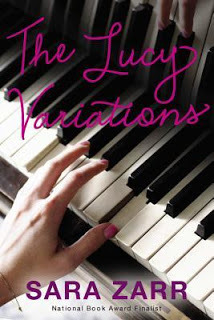
Anyone who has ever created something or pursued a passion knows that sometimes you hit that flow and nothing else in the world exists. What you're doing is the best thing there is and it fills you with everything you need.
Anyone who has ever created something or pursued a passion also knows that it can be the MOST SOUL CRUSHING THING IN THE WORLD. That you're never good enough, that you'll never be good enough, that it's all just a fleeting sort of thing that you get lucky at doing well once in a while. You struggle with being true and honest to yourself, while you're putting something out there to be consumed by others in some capacity.
Zarr's novel The Lucy Variations is about that.
Lucy is a champion pianist and has been her entire life. It runs in her family's blood. She's talented, she's made the rounds of the world performing, and people know who she is. Her grandpa and her mother have given her every single opportunity to pursue this talent and they helped groom her so that she has a world-class reputation.
Up until eight months ago, she went along with the game. She was happy -- or at least thought she was. But when she's in Prague on a big stage and she learns that her family has been keeping her sick grandmother's condition from her, she leaves. She gets up, doesn't perform, and walks onto the streets of Prague. Her grandmother, who had given her the kind of unconditional love and confidence she needed, was dying and her family kept this from her because to them, her performance was more important. It's then that her grandfather, the patriarch of the family and of the performance gene all together, says she's done. That Lucy can never perform again.
She'd disgraced the entire family by failing to perform, and she could not come back.
Lucy accepts this fate until the long-time piano teacher she and her brother Gus shared dies in their home. Lucy tried to save her, but the teacher was gone before she could. When grandpa and mother come back to their home to a dead teacher, it's no big deal. They have her body taken away and immediately look for a new teacher for Gus, so that he can continue on his track to be the next big performer himself. The death of the long-time teacher can't get in the way of him being at his best. Will enters their lives and while he's a good teacher to Gus, he's really interested in helping Lucy come back around to playing. He doesn't pressure her, but he simply asks if she'd ever consider playing again. It's that simple question of whether or not she'd consider playing again -- whether or not LUCY would consider playing again -- that sets the entire story into motion.
This is a question Lucy never considers for herself. Because she was told she couldn't. Her grandfather said it was over for her and there was no going back. But Lucy does consider it, and she decides she does want to play again. Except rather than play for an audience and rather than play for the praise and glory that she did in the past, Lucy wants to play for herself. She wants to relearn what it's like to love the thing she does and the thing that she has mad talent for. As simple as it sounds to reignite that passion, it is anything but. Will's question forces Lucy to realize that playing should be something SHE chooses to do, a passion to which she dedicates HER time because it matters to HER.
For her life up until then, she never realized the power of ownership of talent, of skill, and how she can chose the course of the future for herself. Her grandpa and her mother had been owning it for her.
Complicating this are Lucy's feelings toward other people. Whereas it's easy to see how much she dislikes and even fears both her mother and her grandfather, what's less clear is why she's attached and attracted to Lit teacher and then Will. As the story progresses though, and we start to understand the complicated feelings Lucy has toward performance, we understand her feelings toward these two older men are simply projection of her desire to love and believe her art for herself in the way that these two mentors have done for her. Both have offered her the sort of support and confidence to go in the direction of her own interests and passions and desires in a way that no one else ever has. It's not that easy to understand though because Will's belief in Lucy is too much for her to take. He's pulled strings, and he's broken her trust when she opens up to him about wanting to play again. Will used his own connections in the industry to make sure that Lucy's interest in piano again can be accommodated. That she can jump right back in where she left off. This is, she realizes, the last thing in the world she wants. She doesn't want to be someone's prodigy or someone else's creation or prize. She wants to perform and play because she loves to do it. Because it brings her joy. Not because someone else simply believes she has the ability to go far with it.
Zarr excels at making her characters dynamic, and I appreciate how unashamed she is in making it clear that Lucy comes from privilege. Because rather than make it a way for the reader to dislike and resent Lucy, her inability to fully trust and love her own skills and talents at their own level makes her very relatable. No amount of money or resources can change how human the creative struggle is. This balances well with the grandfather, who is unlikable and sees art as nothing but a way to get ahead and make a name for oneself. It's, of course, how his family came to have their reputation. Zarr furthers this through what seem like much tinier plot points, including Lucy's regular lateness to class, which causes her Lit teacher to treat her not as a special snowflake, but as a student who is being disruptive and, well, privileged. And when Lucy has to confront this because she's copied bits and pieces of her own teacher's scholarship on Alice Munro for her class project, she has a huge awakening and ah ha moment about how MUCH privilege she really has had. No one just gets what they get; they have to work for it. Of course, that working for it is precisely the struggle and the purpose of the story.
The structure of The Lucy Variations is brilliant. It's not entirely linear, but rather, it's built like a symphony. It's layered and complex, building to a high, then drawing back to a scene from the past. It mimics not just the way a song sounds and the way a song plays, but it precisely mimics the creative process and the struggle therein. It's good when it's good, and it's ugly when it is ugly. This book is also written in third person, which removes the reader from the characters. But rather than be distancing, this choice is the right one. It makes the reader better understand Lucy's struggle because it's being explored almost objectively. And, of course, since creativity is anything BUT objective, it hits even harder. It's up and down. It's good and it's bad. There is nothing objective about feelings and passions and desires. They're dynamic.
The hardest thing to learn is to pursue something because you love it and not because someone else tells you that you're good at it. And even during those times you know you're good at it and you know you like it, there are periods when you question why and whether or not it's all simply luck. Zarr nails these ups and downs and these challenges and rewards through Lucy. The Lucy Variations is a book I don't think I'll be forgetting any time soon because it spoke to my own heart. I think it'll speak to the heart of anyone who has ever questioned why they're doing something. Is it for yourself or is it for an audience? When do you push forward and when do you step back and say it's time to move on.
Even though nothing particularly sad happens in the story -- despite there being some sad moments -- I welled up a couple of times because of how raw and tender the emotional and mental honesty is. What Lucy struggles with is something that never goes away, but it's something you come to accept and honor as part of creating and living. Zarr cuts to the core of what it means to BE.
The Lucy Variations is DAMN good. This book will resonate with fans of strong contemporary novels that explore the arts and family relationships. Sarah Ockler fans and fans of Siobhan Vivian will find much to enjoy in Zarr's latest, as will Zarr's already-devoted readership.
Review copy received from the publisher. The Lucy Variations will be available May 7, and we'll have an interview with Sara Zarr next week.







 Related StoriesIn the Shadow of Blackbirds by Cat WintersDr. Bird's Advice for Sad Poets by Evan RoskosTruth or Dare by Jacqueline Green
Related StoriesIn the Shadow of Blackbirds by Cat WintersDr. Bird's Advice for Sad Poets by Evan RoskosTruth or Dare by Jacqueline Green
Published on May 02, 2013 22:00
May 1, 2013
Get Genrefied: Verse Novels
Angela's genre this month for her reader's advisory challenge is one of my favorites, even though it's not technically a genre. It's the verse novel. Like graphic novels -- which we will talk about later this year -- verse novels are a format. They're also a style of telling a story. Rather than making use of traditional prose, verse novels are narrative poetry. There's not one specific means or style of writing the verse either; it can range from free verse (with no guidelines for construction of words) to verse written in a strict style with specific stanza limitations. Sometimes, the verse rhymes but most of the time it does not.
Verse novels can take on a very visual aspect to them, depending upon the author and how he or she chooses to build and construct the verse. Anyone who has opened one of Ellen Hopkins's novels, for example, can see she purposefully builds her verse to have a visual layer on top of the language itself (Identical is a strong example of how she does this).
Since novels written in verse are constructed with a format and style in mind, rather than a genre, they can range from contemporary stories to historical, and they can include mysteries, fantasy, science fiction, and more. Non-fiction can be written in verse, as well, and Margarita Engle is one author who has published a number of YA non-fiction books in verse.
Despite being written in poetry, verse novels can be quite appealing to more reluctant readers because they're less intimidating to look at visually and because -- for the most part -- they read fairly quickly. There are exceptions to this, of course, but the format is one which has wide appeal across a spectrum of readers.
Below are recent -- and not-so-recent -- YA novels in verse. These showcase the range of voices and genres where readers may experience the verse format. All descriptions are from WorldCat, and this list is not exhaustive, so we welcome your comments with additional titles, particularly books which might be coming out later this year. I've included just a single title per author, but I have noted where the author has additional verse titles.
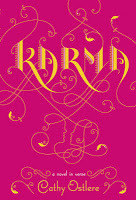
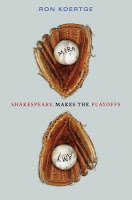
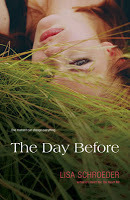
Karma by Cathy Ostlere: In 1984, following her mother's suicide, 15-year-old Maya and her Sikh father travel to New Delhi from Canada to place her mother's ashes in their final resting place. On the night of their arrival, Prime Minister Indira Gandhi is assassinated, Maya and her father are separated when the city erupts in chaos, and Maya must rely on Sandeep, a boy she has just met, for survival.
Shakespeare Makes the Playoffs by Ron Koertge: Fourteen-year-old Kevin Boland, poet and first baseman, is torn between his cute girlfriend Mira and Amy, who is funny, plays Chopin on the piano, and is also a poet. Shakespeare Bats Cleanup is the first book in this two-book series, and it's also written in verse (and you don't have to read them both to get the story).
The Day Before by Lisa Schroeder: Sixteen-year-old Amber, hoping to spend one perfect day alone at the beach before her world is turned upside down, meets and feels a strong connection to Cade, who is looking for his own escape, for a very different reason. As of this writing, Schroeder has written all of the rest of her titles in verse, as well, except for Falling For You.
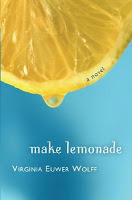
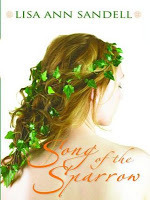
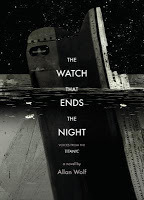
Make Lemonade by Virginia Euwer Wolff: In order to earn money for college, fourteen-year-old LaVaughn babysits for a teenage mother. This is the first book in a trilogy.
Song of the Sparrow by Lisa Ann Sandell: In fifth-century Britain, nine years after the destruction of their home on the island of Shalott brings her to live with her father and brothers in the military encampments of Arthur's army, seventeen-year-old Elaine describes her changing perceptions of war and the people around her as she becomes increasingly involved in the bitter struggle against the invading Saxons.
The Watch That Ends the Night by Allan Wolf: Recreates the 1912 sinking of the Titanic as observed by millionaire John Jacob Astor, a beautiful young Lebanese refugee finding first love, "Unsinkable" Molly Brown, Captain Smith, and others including the iceberg itself.
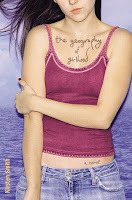
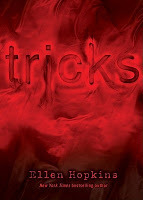
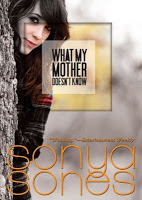
The Geography of Girlhood by Kirsten Smith: Novel in poetry about a girl navigating the unknown, the difficult limbo between youth and adulthood. A novel written in verse follows Penny Morrow in her transition from middle school to high school as her father remarries, she acquires a new stepbrother, and she experiences her first dance, first kiss, and other hazards of growing up. Smith's recent novel, Tricks, features the voice of a character written in verse, as well.
Tricks by Ellen Hopkins: Five troubled teenagers fall into prostitution as they search for freedom, safety, community, family, and love. As of this writing, all of Hopkins's books are written in verse.
What My Mother Doesn't Know by Sonya Sones: Fourteen-year-old Robin Murphy is so unpopular at high school that his name is slang for "loser," and so when he begins dating the beautiful and popular Sophie her reputation plummets, but he finds acceptance as a student in a drawing class at Harvard. This is the first book in a series of two, the second titled What My Girlfriend Doesn't Know. Sones also wrote One of Those Hideous Books Where The Mother Dies, which is also written in verse. Later in 2013, Sonya Sones will release a new novel-in-verse titled To Be Perfectly Honest .
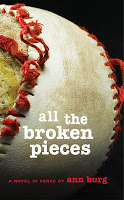
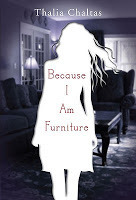
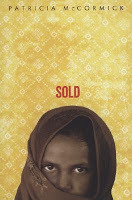
All the Broken Pieces by Ann Burg: Two years after being airlifted out of Vietnam in 1975, Matt Pin is haunted by the terrible secret he left behind and, now, in a loving adoptive home in the United States, a series of profound events forces him to confront his past.
Because I Am Furniture by Thalia Chaltas: The youngest of three siblings, fourteen-year-old Anke feels both relieved and neglected that her father abuses her brother and sister but ignores her, but when she catches him with one of her friends, she finally becomes angry enough to take action. Displacement, Chaltas's other novel, is also written in verse.
Sold by Patricia McCormick: Thirteen-year-old Lakshmi leaves her poor mountain home in Nepal thinking that she is to work in the city as a maid only to find that she has been sold into the sex slave trade in India and that there is no hope of escape.
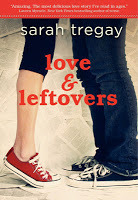
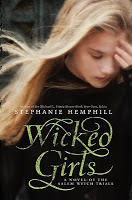
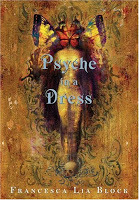
Love & Leftovers by Sarah Tregay: When her father starts dating a man, fifteen-year-old Marcie's depressed mother takes her to New Hampshire but just as Marcie starts falling for a great guy her father brings her back to Iowa, where all of her relationships have become strained.
Wicked Girls by Stephanie Hemphill: A fictionalized account, told in verse, of the Salem witch trials, told from the perspective of three of the real young women living in Salem in 1692--Mercy Lewis, Margaret Walcott, and Ann Putnam, Jr. Hemphill's prior titles, Your Own, Sylvia and Things Left Unsaid are also written in verse, as is her more recent title, Sisters of Glass.
Psyche in a Dress by Francesca Lia Block: A young woman, Psyche, searches for her lost love and questions her true self in a modern retelling of Greek myths.
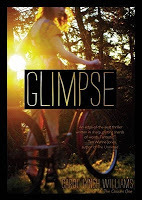
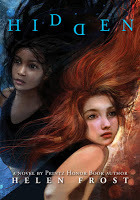
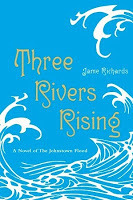
Glimpse by Carol Lynch Williams: Living with their mother who earns money as a prostitute, two sisters take care of each other and when the older one attempts suicide, the younger one tries to uncover the reason. Williams's Waiting is also written in verse.
Hidden by Helen Frost: When fourteen-year-olds Wren and Darra meet at a Michigan summer camp, both are overwhelmed by memories from six years earlier when Darra's father stole a car, unaware that Wren was hiding in the back. Frost's other books, including Crossing Stones, The Braid, and Diamond Willow are written in verse.
Three Rivers Rising by Jame Richards: Sixteen-year-old Celestia spends every summer with her family at a resort at Lake Conemaugh, an Allegheny Mountain reservoir held in place by a 70-foot dam. Tired of the society crowd, Celestia much prefers to swim and fish with Peter, the hotel's hired boy. It's a friendship she must keep secret from her parents, and when companionship turns to romance, it's a love that could get Celestia disowned. These affairs of the heart become all the more wrenching on a single, tragic day in May of 1889.
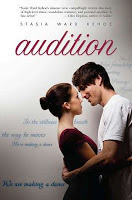
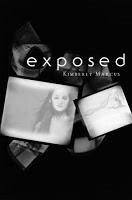
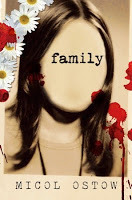
Audition by Stasia Ward Kehoe: When sixteen-year-old Sara, from a small Vermont town, wins a scholarship to study ballet in New Jersey, her ambivalence about her future increases even as her dancing improves.
Exposed by Kimberly Marcus: High school senior Liz, a gifted photographer, can no longer see things clearly after her best friend accuses Liz's older brother of a terrible crime.
Family by Micol Ostow: In the 1960s, seventeen-year-old Melinda leaves an abusive home for San Francisco, meets the charismatic Henry, and follows him to his desert commune where sex and drugs are free, but soon his "family" becomes violent against rich and powerful people and she is compelled to join in. Told in episodic verse, this is a fictionalized exploration of cult dynamics, loosely based on the Manson Family murders of 1969.
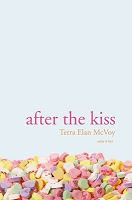
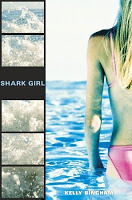
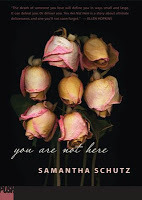
After the Kiss by Tera Elan McVoy: In alternating chapters, two high school senior girls in Atlanta reveal their thoughts and frustrations as they go through their final semester of high school.
Shark Girl by Kelly Bingham: After a shark attack causes the amputation of her right arm, fifteen-year-old Jane, an aspiring artist, struggles to come to terms with her loss and the changes it imposes on her day-to-day life and her plans for the future. Bingham wrote a companion novel to this one, titled Formerly Shark Girl.
You Are Not Here by Samantha Schutz: Annaleah's grief over the tragic death of seventeen-year-old Brian is compounded by the fact that her friends did not like him, while his friends and both of their families knew nothing of their intimate relationship.
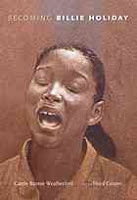
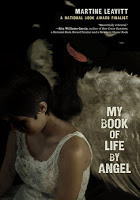
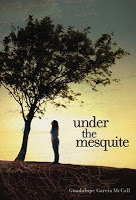
Becoming Billie Holiday by Carole Boston Weatherford: Jazz vocalist Billie Holiday looks back on her early years in this fictional memoir written in verse.
My Book of Life by Angel by Martine Leavitt: 16-year-old Angel struggles to free herself from the trap of prostitution in which she is caught.
Under the Mesquite by Guadalupe Garcia McCall: Throughout her high school years, as her mother battles cancer, Lupita takes on more responsibility for her house and seven younger siblings, while finding refuge in acting and writing poetry. Includes glossary of Spanish terms.
Want some more reading about verse novels? Then check out the following:
Lisa Schroeder has written about why it is she writes in verse.
Last month, at Horn Book, there was a spotlight on notable children's books written in verse in the past year (it includes younger than YA titles, as well as YA titles).
The bloggers over at Clear Eyes, Full Shelves have done an entire week-long series honoring the verse novel, including book lists, reviews, and guest posts.
Also, keep the blog and web resource Verse Novels on your radar. We're taking part today in their year-long Thursday feature that aims to have verse novels highlighted throughout the blogging world.







 Related StoriesGet Genrefied: Mysteries (+ Thrillers)Guest Post: Lisa Schroeder on Alternate Formats in Contemporary YA FictionContemporary YA Fiction in Alternative Formats Book List
Related StoriesGet Genrefied: Mysteries (+ Thrillers)Guest Post: Lisa Schroeder on Alternate Formats in Contemporary YA FictionContemporary YA Fiction in Alternative Formats Book List
Verse novels can take on a very visual aspect to them, depending upon the author and how he or she chooses to build and construct the verse. Anyone who has opened one of Ellen Hopkins's novels, for example, can see she purposefully builds her verse to have a visual layer on top of the language itself (Identical is a strong example of how she does this).
Since novels written in verse are constructed with a format and style in mind, rather than a genre, they can range from contemporary stories to historical, and they can include mysteries, fantasy, science fiction, and more. Non-fiction can be written in verse, as well, and Margarita Engle is one author who has published a number of YA non-fiction books in verse.
Despite being written in poetry, verse novels can be quite appealing to more reluctant readers because they're less intimidating to look at visually and because -- for the most part -- they read fairly quickly. There are exceptions to this, of course, but the format is one which has wide appeal across a spectrum of readers.
Below are recent -- and not-so-recent -- YA novels in verse. These showcase the range of voices and genres where readers may experience the verse format. All descriptions are from WorldCat, and this list is not exhaustive, so we welcome your comments with additional titles, particularly books which might be coming out later this year. I've included just a single title per author, but I have noted where the author has additional verse titles.



Karma by Cathy Ostlere: In 1984, following her mother's suicide, 15-year-old Maya and her Sikh father travel to New Delhi from Canada to place her mother's ashes in their final resting place. On the night of their arrival, Prime Minister Indira Gandhi is assassinated, Maya and her father are separated when the city erupts in chaos, and Maya must rely on Sandeep, a boy she has just met, for survival.
Shakespeare Makes the Playoffs by Ron Koertge: Fourteen-year-old Kevin Boland, poet and first baseman, is torn between his cute girlfriend Mira and Amy, who is funny, plays Chopin on the piano, and is also a poet. Shakespeare Bats Cleanup is the first book in this two-book series, and it's also written in verse (and you don't have to read them both to get the story).
The Day Before by Lisa Schroeder: Sixteen-year-old Amber, hoping to spend one perfect day alone at the beach before her world is turned upside down, meets and feels a strong connection to Cade, who is looking for his own escape, for a very different reason. As of this writing, Schroeder has written all of the rest of her titles in verse, as well, except for Falling For You.



Make Lemonade by Virginia Euwer Wolff: In order to earn money for college, fourteen-year-old LaVaughn babysits for a teenage mother. This is the first book in a trilogy.
Song of the Sparrow by Lisa Ann Sandell: In fifth-century Britain, nine years after the destruction of their home on the island of Shalott brings her to live with her father and brothers in the military encampments of Arthur's army, seventeen-year-old Elaine describes her changing perceptions of war and the people around her as she becomes increasingly involved in the bitter struggle against the invading Saxons.
The Watch That Ends the Night by Allan Wolf: Recreates the 1912 sinking of the Titanic as observed by millionaire John Jacob Astor, a beautiful young Lebanese refugee finding first love, "Unsinkable" Molly Brown, Captain Smith, and others including the iceberg itself.



The Geography of Girlhood by Kirsten Smith: Novel in poetry about a girl navigating the unknown, the difficult limbo between youth and adulthood. A novel written in verse follows Penny Morrow in her transition from middle school to high school as her father remarries, she acquires a new stepbrother, and she experiences her first dance, first kiss, and other hazards of growing up. Smith's recent novel, Tricks, features the voice of a character written in verse, as well.
Tricks by Ellen Hopkins: Five troubled teenagers fall into prostitution as they search for freedom, safety, community, family, and love. As of this writing, all of Hopkins's books are written in verse.
What My Mother Doesn't Know by Sonya Sones: Fourteen-year-old Robin Murphy is so unpopular at high school that his name is slang for "loser," and so when he begins dating the beautiful and popular Sophie her reputation plummets, but he finds acceptance as a student in a drawing class at Harvard. This is the first book in a series of two, the second titled What My Girlfriend Doesn't Know. Sones also wrote One of Those Hideous Books Where The Mother Dies, which is also written in verse. Later in 2013, Sonya Sones will release a new novel-in-verse titled To Be Perfectly Honest .



All the Broken Pieces by Ann Burg: Two years after being airlifted out of Vietnam in 1975, Matt Pin is haunted by the terrible secret he left behind and, now, in a loving adoptive home in the United States, a series of profound events forces him to confront his past.
Because I Am Furniture by Thalia Chaltas: The youngest of three siblings, fourteen-year-old Anke feels both relieved and neglected that her father abuses her brother and sister but ignores her, but when she catches him with one of her friends, she finally becomes angry enough to take action. Displacement, Chaltas's other novel, is also written in verse.
Sold by Patricia McCormick: Thirteen-year-old Lakshmi leaves her poor mountain home in Nepal thinking that she is to work in the city as a maid only to find that she has been sold into the sex slave trade in India and that there is no hope of escape.



Love & Leftovers by Sarah Tregay: When her father starts dating a man, fifteen-year-old Marcie's depressed mother takes her to New Hampshire but just as Marcie starts falling for a great guy her father brings her back to Iowa, where all of her relationships have become strained.
Wicked Girls by Stephanie Hemphill: A fictionalized account, told in verse, of the Salem witch trials, told from the perspective of three of the real young women living in Salem in 1692--Mercy Lewis, Margaret Walcott, and Ann Putnam, Jr. Hemphill's prior titles, Your Own, Sylvia and Things Left Unsaid are also written in verse, as is her more recent title, Sisters of Glass.
Psyche in a Dress by Francesca Lia Block: A young woman, Psyche, searches for her lost love and questions her true self in a modern retelling of Greek myths.



Glimpse by Carol Lynch Williams: Living with their mother who earns money as a prostitute, two sisters take care of each other and when the older one attempts suicide, the younger one tries to uncover the reason. Williams's Waiting is also written in verse.
Hidden by Helen Frost: When fourteen-year-olds Wren and Darra meet at a Michigan summer camp, both are overwhelmed by memories from six years earlier when Darra's father stole a car, unaware that Wren was hiding in the back. Frost's other books, including Crossing Stones, The Braid, and Diamond Willow are written in verse.
Three Rivers Rising by Jame Richards: Sixteen-year-old Celestia spends every summer with her family at a resort at Lake Conemaugh, an Allegheny Mountain reservoir held in place by a 70-foot dam. Tired of the society crowd, Celestia much prefers to swim and fish with Peter, the hotel's hired boy. It's a friendship she must keep secret from her parents, and when companionship turns to romance, it's a love that could get Celestia disowned. These affairs of the heart become all the more wrenching on a single, tragic day in May of 1889.



Audition by Stasia Ward Kehoe: When sixteen-year-old Sara, from a small Vermont town, wins a scholarship to study ballet in New Jersey, her ambivalence about her future increases even as her dancing improves.
Exposed by Kimberly Marcus: High school senior Liz, a gifted photographer, can no longer see things clearly after her best friend accuses Liz's older brother of a terrible crime.
Family by Micol Ostow: In the 1960s, seventeen-year-old Melinda leaves an abusive home for San Francisco, meets the charismatic Henry, and follows him to his desert commune where sex and drugs are free, but soon his "family" becomes violent against rich and powerful people and she is compelled to join in. Told in episodic verse, this is a fictionalized exploration of cult dynamics, loosely based on the Manson Family murders of 1969.



After the Kiss by Tera Elan McVoy: In alternating chapters, two high school senior girls in Atlanta reveal their thoughts and frustrations as they go through their final semester of high school.
Shark Girl by Kelly Bingham: After a shark attack causes the amputation of her right arm, fifteen-year-old Jane, an aspiring artist, struggles to come to terms with her loss and the changes it imposes on her day-to-day life and her plans for the future. Bingham wrote a companion novel to this one, titled Formerly Shark Girl.
You Are Not Here by Samantha Schutz: Annaleah's grief over the tragic death of seventeen-year-old Brian is compounded by the fact that her friends did not like him, while his friends and both of their families knew nothing of their intimate relationship.



Becoming Billie Holiday by Carole Boston Weatherford: Jazz vocalist Billie Holiday looks back on her early years in this fictional memoir written in verse.
My Book of Life by Angel by Martine Leavitt: 16-year-old Angel struggles to free herself from the trap of prostitution in which she is caught.
Under the Mesquite by Guadalupe Garcia McCall: Throughout her high school years, as her mother battles cancer, Lupita takes on more responsibility for her house and seven younger siblings, while finding refuge in acting and writing poetry. Includes glossary of Spanish terms.
Want some more reading about verse novels? Then check out the following:
Lisa Schroeder has written about why it is she writes in verse.
Last month, at Horn Book, there was a spotlight on notable children's books written in verse in the past year (it includes younger than YA titles, as well as YA titles).
The bloggers over at Clear Eyes, Full Shelves have done an entire week-long series honoring the verse novel, including book lists, reviews, and guest posts.
Also, keep the blog and web resource Verse Novels on your radar. We're taking part today in their year-long Thursday feature that aims to have verse novels highlighted throughout the blogging world.







 Related StoriesGet Genrefied: Mysteries (+ Thrillers)Guest Post: Lisa Schroeder on Alternate Formats in Contemporary YA FictionContemporary YA Fiction in Alternative Formats Book List
Related StoriesGet Genrefied: Mysteries (+ Thrillers)Guest Post: Lisa Schroeder on Alternate Formats in Contemporary YA FictionContemporary YA Fiction in Alternative Formats Book List
Published on May 01, 2013 22:00
April 30, 2013
Show Me the Awesome: 30 Days of Self Promotion
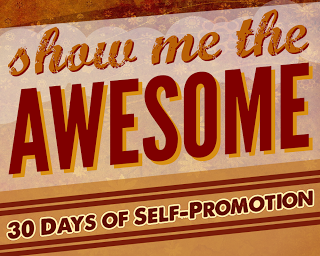
design by John LeMasney via lemasney.com
Remember our call for posts about self-promotion and librarianship a few weeks ago? This is the official starting line, and for every post we receive on the topic, we'll link it up here for easy, ready access. We'll update this post as close to daily as possible.
While we have a lineup of official people taking part in the series, anyone is welcome to blog on the topic of self promotion. You can talk about a program you did and loved. You can talk about how you perform strong reader's advisory with teens. You can talk about the grander idea of self promotion itself. There's nothing off limits, as long as you're talking about libraries and self promotion or librarianship and self promotion in some capacity.
If you do post something and want it shared, leave a link and we'll spread the word. All are welcome to use the graphic above with a post, as long as credit as listed above is given.
A huge thank you goes out to Sophie Brookover for coordinating this huge project, to John LeMasney for the graphic, and an advanced thank you to everyone who decided to take on the pitch and write about this very important, very timely, and very relevant topic.
Here's to 30 Days of Awesome through the month of May. Show us what you've got.
The Illustrated Librarian talks about exhibiting awesome outreach
Rachel tells us all about how and why she rocks out at report writing








Published on April 30, 2013 22:00
April 29, 2013
Three Cybils Reviews: The Clunkers
I really enjoyed being on Round 2 of the graphic novels category for the Cybils this past year, and part of what made it so nice is that I had nearly double the number of books to read (not a hardship for graphic novels). With ten books, you get a nice variety of topics, targeted age groups, and artistic styles. With ten books, there are also bound to be a few clunkers. These three titles didn't impress me for various reasons - sometimes it boiled down to my own personal reading tastes, sometimes not.
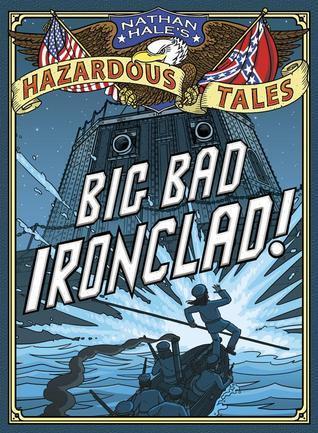 Nathan Hale's Hazardous Tales: Big Bad Ironclad!
by Nathan Hale
Nathan Hale's Hazardous Tales: Big Bad Ironclad!
by Nathan HaleBig Bad Ironclad is about the ironclad steam warships that both the North and South used in the Civil War, and the pioneering men who designed, used, and fought in them. I like history and historical fiction a lot - when it's about certain
topics. The Civil War? Fascinating! The naval history of the Civil War?
Not so much. The story is told in a jocular style, with some people represented as animals and a few (obvious) liberties taken with the facts for laughs. It's clearly meant to be funny, but the humor fell mostly flat for me.
I also quickly tired of the Nathan Hale gimmick (Nathan Hale is both the name of the author/illustrator and the name of an American spy who was hanged during the Revolutionary War. Spy Nathan Hale tells this story to his would-be executioners - though it hasn't happened yet in his timeline - as a way to put off his execution, much like Scheherazade). For kids interested in naval history (and I know there are many), this should fit the bill, and I know the humor will be a good fit for other readers, but this just isn't for me.
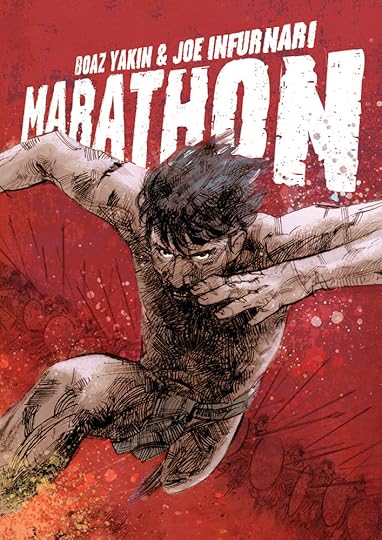 Marathon
by Boaz Yakin and Joe Infurnari
Marathon
by Boaz Yakin and Joe InfurnariThis story of Eucles, the Athenian man who ran the first "marathon" from Sparta to Athens in 490 BC, has such high appeal, but the art prevents it from really succeeding. The book's main focus is Eucles' run, but it also relates a lot of his childhood as well as necessary context for the fighting between the Greeks and the Persians. It skips around in time and place a lot and multiple characters are introduced. Normally, this wouldn't be a problem, but the art is so sketchy that it's impossible to understand what is going on. Characters cannot be distinguished from one another and there's no real sense of place or time. The art may be stylistically very good, but it doesn't work as a vehicle for storytelling. The only reason I was able to understand some of what went on is because I knew some of the story already.
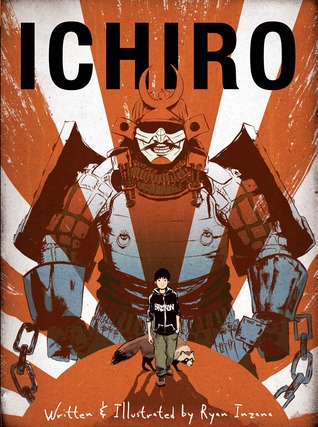 Ichiro
by Ryan Inzana
Ichiro
by Ryan InzanaIchiro's American father was a soldier who died overseas many years ago in the Iraq war, and his father's father has cultivated in Ichiro a love of war and a distrust and even hate for anything non-American. (Ichiro has a shirt he is rather fond of that reads "Kill 'em all and let God sort them out.") Then Ichiro's Japanese mother takes him to live with her father in Japan, and it is there that Ichiro first starts to explore his Japanese heritage and reject some of the ideas his American grandfather has inculcated in him. His adventure truly begins, however, when he falls through a hole in the ground into a fantasy realm of warring gods...and this is where the story lost me.
Inzana uses these mythological elements to explore the complex ways that race, war, and heritage impact our lives, but it doesn't quite work for me. I found these sections a bit jumbled, though the message is earnest and important. (Some may say the book is a little too message-heavy.) I did enjoy the art, with its bold colors and clean lines (always the kind of art I like best). I think there's a lot to unpack here, which may be better appreciated with multiple readings. Still, it was not a favorite.







 Related StoriesA Pair of Cybils ReviewsIn the Shadow of Blackbirds by Cat WintersDr. Bird's Advice for Sad Poets by Evan Roskos
Related StoriesA Pair of Cybils ReviewsIn the Shadow of Blackbirds by Cat WintersDr. Bird's Advice for Sad Poets by Evan Roskos
Published on April 29, 2013 22:00
April 28, 2013
So You Want to Read YA?: Guest Post by Kate Testerman, Literary Agent
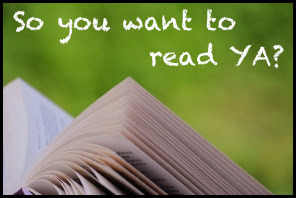
Today's contribution to our series comes from an entirely different side of the book world: the agent side. And it's our first -- but not our last -- agent who is contributing to the series this time. Welcome Kate Testerman!
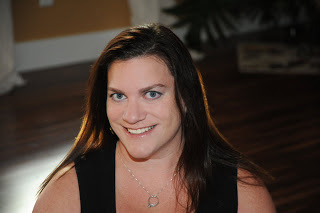
Kate Schafer Testerman moved to Colorado and formed kt literary in early 2008, where she concentrates on middle grade and young adult fiction. Bringing to bear the experience of working with a large agency, she enjoys concentrating on all aspects of working with her authors, offering hands-on experience, personal service, and a surfeit of optimism. Her clients include Maureen Johnson, Ellen Booraem, Stephanie Perkins, Trish Doller, Thomas E. Sniegoski, Amy Spalding, and Matthew Cody, among other exciting and acclaimed authors. Kate is a graduate of the University of Delaware’s Honors Program, a former cast member of the New York Renaissance Faire, and an avid collector of shoes. Her interests cover a broad range including teen chick lit, urban fantasy and magical realism, adventure stories, and romantic comedies. She is an active member of the SCBWI and AAR.
Before I represented YA (and MG), I devoured it like some sort of book dinosaur. Every week found teenage me in either my local library, or, when that got too small for me, in the county library, diligently pouring over the shelves and carousels for new books to read. I was voracious, but was I discerning? Not exactly.
I read dozens of Sweet Valley High novels, every Nancy Drew I could find, anything with horses on the cover or promised inside, and piles of titles by Paula Danzinger before I started dipping in to the adult books, skipping from Judy Blume straight to Judith Krantz.
As a freshman in college, when other students were knuckling under the pressure of organic chemistry and engineering classes, I lucked into what remains my favorite college class I ever took – “Popular Fiction and its Literary Antecendents.” In it, we looked at some of the top genre titles of the time, and traced them back to their forebearers – from Heinlein and LeGuin back to Mary Shelley, and from Sandra Brown to Charlotte Bronte.
In looking at today’s Young Adult field, so much wider than the meager shelves that contained what was considered YA when I was a teen, I want to pay homage to that English professor at the University of Delaware back in 1991, and pick a few old and new classics to get you on your way.
So you want to read YA? Awesome! Start here:
Contemporary classics
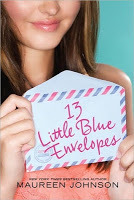
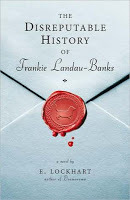
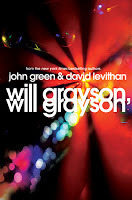
Those Paula Danzinger and Judy Blume titles I read as an awkward teen? Still fab. Their literary heirs today include E. Lockhart (The Disreputable History of Frankie Landau-Banks and the Ruby Oliver series, starting with The Boyfriend List), Maureen Johnson (start with 13 Little Blue Envelopes), and Stephanie Perkins (Anna and the French Kiss and Lola and the Boy Next Door). And of course, John Green’s entire oeuvre, especially Will Grayson, Will Grayson, co-written with David Levithan, which takes awkwardness and coincidences to a new level.
Wish fulfillment
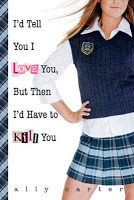
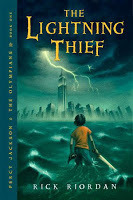
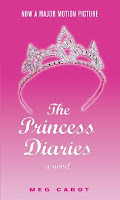
Heir to Frances Hodgson Burnett’s A Little Princess, Meg Cabot’s Princess Diaries brought the princess in every girl to modern San Francisco, and turned her into a Greenpeace activist who still found time to crush on her best friend’s brother. Princesses not your thing? Maybe you’d like to be a god instead? Rick Riordan’s Percy Jackson & The Olympians starts as MG, but takes our half-blood hero up to age 16. Or how about a spy? Try I’d Tell You I Love You, But Then I’d Have To Kill You by Ally Carter.
Fairies/faeries/fae
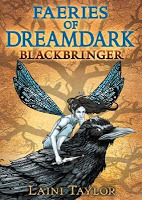
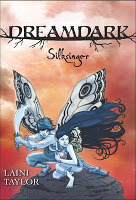
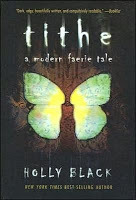
If you were more interested in Tinker Bell than Peter Pan in J.M. Barrie’s classic, today’s urban fantasy puts the spotlight directly on fairykind, with all their quirks, odd habits, and continuing interest in us regular folks. I still push Tithe by Holly Black into the hands of everyone I know who likes reading about humans and the fae, and if all you know of Laini Taylor is her international Daughter of Smoke and Bone, you’re in for a treat with her Fairies of Dreamdark books.
Otherworldy adventures
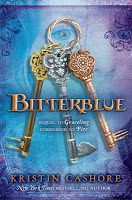
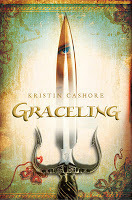
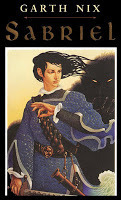
If you haven’t stepped through a portal into another world since that wardrobe opened into Narnia, ring a bell and step into Garth Nix’s The Old Kingdom in Sabriel, Lirael, and Abhorsen, or visit Katsa’s Seven Kingdoms in Graceling, Fire, and Bitterblue.
Historical
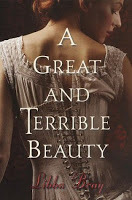
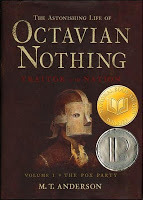
Even if Esther Forbes’ Johnny Tremain wasn’t your cup of tea (dumped in Boston Harbour), historical novels kept being assigned, and every once in a while, if you were lucky, one of them would turn out to be The Witch of Blackbird Pond by Elizabeth George Speare or Island of the Blue Dolphins by Scott O’Dell. Scratch that historical itch with Code Name Verity by Elizabeth Wein, The Astonishing Life of Octavian Nothing by M.T.Anderson, or Chains by Laurie Halse Anderson. And if you want a dose of magic in your historical fiction, dive into Libba Bray’s A Great and Terrible Beauty series.
Classic retellings
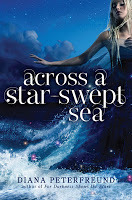
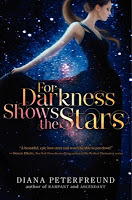
The final entry on our list takes the classics and retells them directly, adding a modern spin on a treasured story. I love Diana Peterfreund’s For Darkness Shows The Stars, a retelling of Persuasion by Jane Austen, and can’t wait for her new one – Across a Star-Swept Sea, a retelling of The Scarlet Pimpernel by Baroness Orczy.
Enjoy reading!







 Related StoriesSo You Want to Read YA?: Guest Post from librarian/blogger Sarah Bean ThompsonSo You Want to Read YA?: Guest Post from Malinda Lo (author of Adaptation)So You Want to Read YA? Guest Post from teacher Jillian Heise
Related StoriesSo You Want to Read YA?: Guest Post from librarian/blogger Sarah Bean ThompsonSo You Want to Read YA?: Guest Post from Malinda Lo (author of Adaptation)So You Want to Read YA? Guest Post from teacher Jillian Heise
Published on April 28, 2013 22:00
April 25, 2013
A Pair of Cybils Reviews
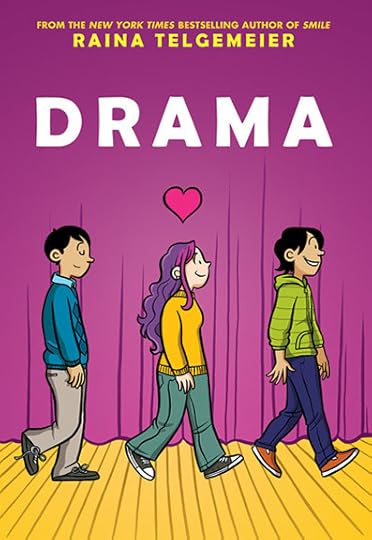 Drama
by Raina Telgemeier
Drama
by Raina TelgemeierI love Telgemeier's style - her art is so bright and colorful, it's immediately attention-grabbing. Each of her characters is distinct, with easily understood (and frequently funny) facial expressions.
Drama explores the lives of a group of middle school kids putting on a production of Moon Over Mississippi, focusing on Callie, the set designer. The book touches on a lot of topics aside from the issues that come with putting on a show, which I think broadens its accessibility beyond drama geeks: crushes, sexuality, friendship. And of course, it's nice to see the focus placed on the behind-the-scenes crew (who are refreshingly diverse) rather than the actors.
What makes the book really shine is its treatment of homosexuality. While Callie herself is sure she likes boys, at least one of her friends is proudly interested in members of the same sex - and one other is struggling more quietly. The situation is complicated by Callie's own crush on one of these boys.
I've read many reviews by people who believe this topic is too mature for its audience, but I couldn't disagree more. Middle school is just the time when many kids are learning what it is they like (and some learn years earlier). Telgemeier presents Callie's and her friends' situations with sensitivity and understanding. I think kids will see themselves in the characters.
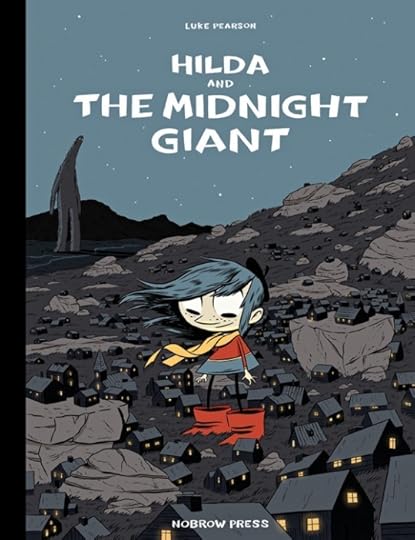 Hilda and the Midnight Giant
by Luke Pearson
Hilda and the Midnight Giant
by Luke PearsonHilda and her mother are being plagued by elves. These elves live in tiny, invisible houses in the same area where Hilda does, and they claim they were there first. Moreover, they say that Hilda and her mother are always stepping on their houses, which is a great annoyance. The elves demand that Hilda and her mother leave, or they will take action.
Hilda thinks this is ridiculous and sets out to talk to the elf in charge in hopes of convincing him they can live together peacefully. On her journey, she meets a giant with his own story to tell, and she decides to help him out as best she can.
This is a weird one (the word "quirky" could have been coined to describe it), but I liked it. It's a larger book, allowing for some nice full-page landscapes highlighting the contrasts between the tiny elves, medium-sized Hilda, and the giant. The colors are mostly muted, nothing at all like the bright and cheery ones you find in Drama. It sets a nice mood, enhancing the feel that maybe this story is not taking place in our world at all.
The story is more than a little strange, and the ending - which is abrupt and arrives with no foreshadowing - may turn some readers off. But it's certainly in keeping with the book's whimsical feel, and I appreciated reading something a little different.







 Related StoriesRelish: My Life in the Kitchen by Lucy KnisleyAnnie Sullivan and the Trials of Helen Keller by Joseph LambertIn the Shadow of Blackbirds by Cat Winters
Related StoriesRelish: My Life in the Kitchen by Lucy KnisleyAnnie Sullivan and the Trials of Helen Keller by Joseph LambertIn the Shadow of Blackbirds by Cat Winters
Published on April 25, 2013 22:00
April 24, 2013
In the Shadow of Blackbirds by Cat Winters

By now, I've learned I don't particularly care for ghost stories, but I keep trying them, usually when I read a glowing review. In the Shadow of Blackbirds by Cat Winters was my latest experiment, and it wasn't much of a success.
It's 1918, and Mary Shelley Black (a name I never warmed to - it seemed just too much for this type of story) saw her childhood friend and sweetheart Stephen go off to fight in World War I. She worries for him, fighting in France, but she's also facing a horror at home: the Spanish flu, which has swept the globe, killing most people it affects. Though she and her aunt (whom she is living with, her mother dead and her father in prison for protesting the war) have not yet been afflicted, they live in terror of it.
Because of the war and the flu, spiritualism flourishes. (Winters mentions in her author note that the average life expectancy dropped to below 40 during this time.) People are desperate to connect with loved ones who have passed on, leading to a rise in spirit photography, where convincing charlatans photograph bereaved people and then present a photo with the loved one's "spirit" standing near them.
Stephen's older brother Julius is one of these photographers, and he claims Mary Shelley is his muse. He convinces her to sit for him, and presents a photo of her with Stephen's ghost hovering near her. Immediately after, Mary Shelley learns that Stephen has died on the battlefield. She is so stricken with grief, she goes out in the middle of a storm and is struck by lightning. She is dead for several seconds, and when she is resuscitated, she finds she is...changed. Previously a skeptic, she can now see Stephen's ghost, and he is tormented. He claims he's being tortured by murderous blackbirds, and Mary Shelley soon realizes that the accounts of his death aren't quite right. She sets out to determine what happened to Stephen and allow him to rest.
The setup is intriguing, and Mary Shelley's haunting look on the cover drew me in. But ultimately, I found the book disappointing. The first misstep was the inclusion of the flashback right at the beginning, which threw the timeline off for me for a bit. This flashback is important, since it establishes Mary Shelley's and Stephen's relationship, as well as Stephen's relationship with Julius, but I'm just not a fan of flashbacks in general.
Yes, it's a fairly atmospheric story (thanks in large part to the period photos sprinkled throughout), with some interesting historical details. Yes, the romance is nicely sensual for a change (as opposed to many historical teen novels where holding hands is the farthest either party wants to go). And yes, it does get quite creepy at moments. But the main plotline involving Stephen's ghost never completely grabbed me. I feel like most ghost stories rely on the ghost either being unwilling or unable to reveal what's distressing it, and that's the case here, too. How compelling of a mystery can it be if it can be solved by the ghost just letting go of its stubborness and sharing the information it has? I understand that Stephen's ghost was not necessarily able to share, but it seems like a cheat.
This is not a situation particular to In the Shadow of Blackbirds, and to be fair, many people enjoy this aspect of the ghost story, where the ghost is so tortured it simply cannot act rationally. Alas, I am not one of those people. This is a case of "It's not you, it's me." In addition, I found the mystery fairly easy to solve (there was not a large pool of suspects), though I have to admit, Winters surprised me with some of it.
I did enjoy reading about how the flu affected the population. That era is not one I've studied much, so I was surprised to learn how large the death toll was (larger than the death toll from the war), and it was fascinating to read about the home remedies desperate people resorted to (onion soup and garlic).
For established fans of ghost stories, this should fit the bill, but I'm not sure it will convert the uninitiated. (Since, you know, it didn't convert me.) For a different take on this book, check out Lenore's and Christina's dual reviews (and, incidentally, the place where I got the review copy).







 Related StoriesDr. Bird's Advice for Sad Poets by Evan RoskosTruth or Dare by Jacqueline GreenThe Cydonian Pyramid by Pete Hautman
Related StoriesDr. Bird's Advice for Sad Poets by Evan RoskosTruth or Dare by Jacqueline GreenThe Cydonian Pyramid by Pete Hautman
Published on April 24, 2013 22:00



